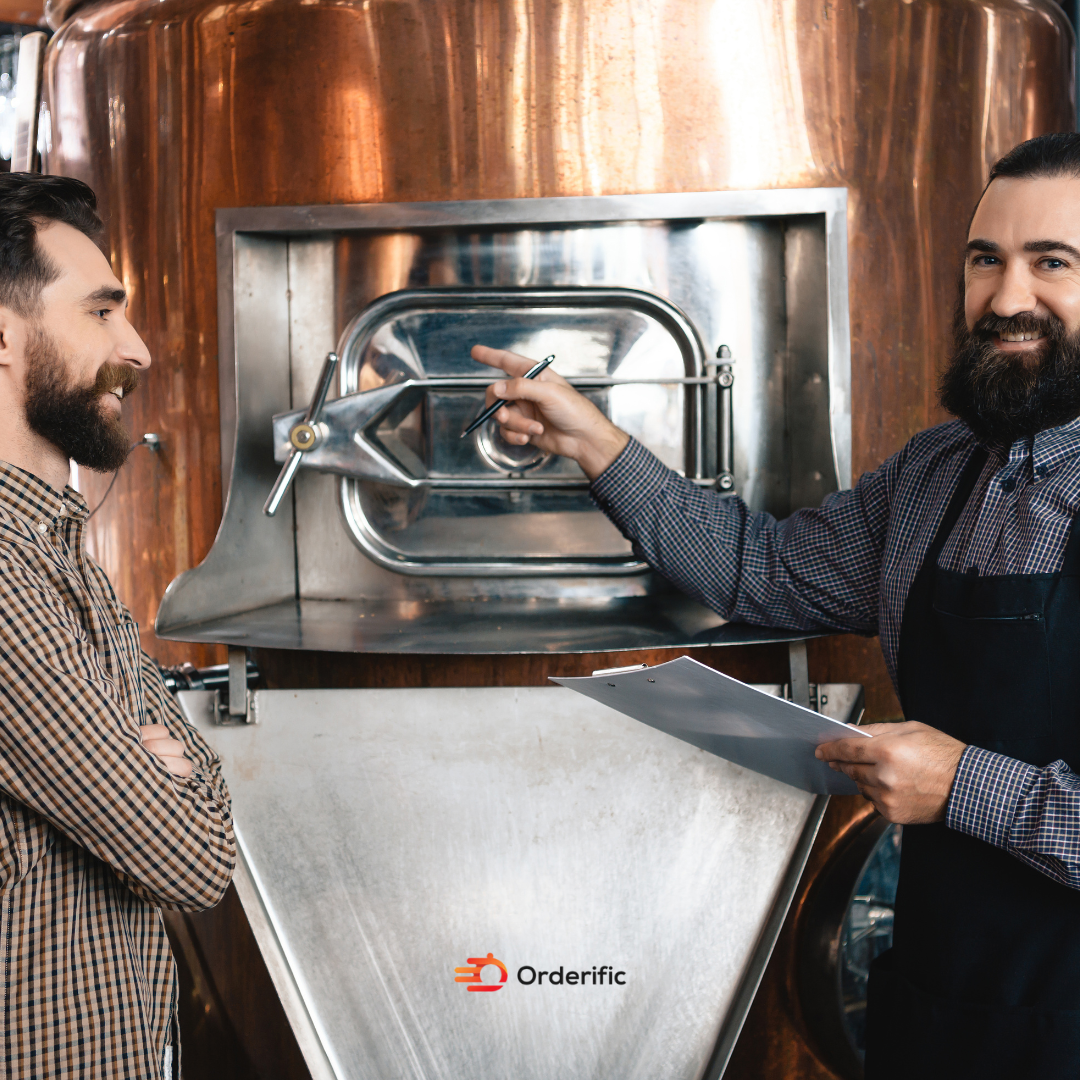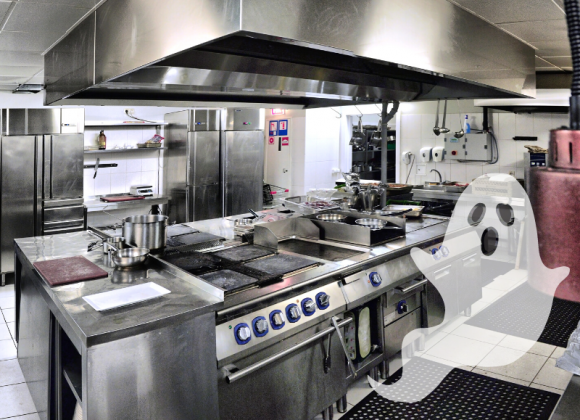The dream of starting your own craft brewery is becoming increasingly achievable each day, but it requires an extensive list of essential equipment in order to be successful. From mash tuns and fermentation tanks to keg machines and bottle fillers – operating a fully-functioning brewery involves top-notch equipment that will ensure high quality beer production and optimal performance for years to come. To help you create the perfect set up for your new business venture, we’ve compiled this comprehensive guide outlining the must-have devices necessary for brewing beer like a pro! Read on as we review each important piece of brewery machinery so that you can kickstart your own process with confidence.
Essential Brewery Equipment List (Appliances, Tools, Essentials)
To establish a functional brewery that guarantees a seamless brewing process and delivers a superior final product, a diverse range of equipment is indispensable. The following is a comprehensive compilation of crucial brewery equipment encompassing appliances, tools, and essentials that are essential for consideration:
Brewing Equipment:
- Mash Tun: Used for mashing and converting starches in malted grains into sugars.
- Boil Kettle: Where the wort (unfermented beer) is boiled and hops are added for flavor and bitterness.
- Fermenters: Vessels where yeast is added to the cooled wort for fermentation.
- Bright Tanks: Used for secondary fermentation, conditioning, and carbonation.
- Heat Exchanger: Cools down the wort quickly after boiling, preparing it for fermentation.
- Hot Liquor Tank: Stores hot water used in various stages of brewing.
- Cold Liquor Tank: Stores cold water used for cooling and other purposes.
- Pumps: Used to transfer liquids between different vessels.
- Wort Aerator: Adds oxygen to the wort before fermentation, aiding yeast health.
- Yeast Propagation Equipment: For growing and propagating yeast cultures.
- CIP (Clean in Place) System: Equipment for efficient cleaning of vessels and lines.
Fermentation and Conditioning
- Temperature Control System: Keeps the fermentation temperature stable.
- Airlocks and Blow-off Tubes: Allow carbon dioxide to escape during fermentation without letting contaminants in.
- Hydrometer and Refractometer: Measures specific gravity to determine alcohol content and fermentation progress.
- pH Meter: Monitors pH levels during brewing.
- Thermometers: Measure temperatures at various stages.
- Sampling Thief: Collects samples for testing without contaminating the main batch.
Bottling and Packaging
- Bottling Buckets: Used for transferring beer to bottles.
- Bottle Filler: Fills bottles with beer while minimizing oxygen exposure.
- Capper: Seals bottles with caps.
- Kegs: For kegging and storing larger quantities of beer.
- Keg Washer: Cleans and sanitizes kegs for reuse.
- Labeling Machine: Applies labels to bottles or cans.
- Packaging Material: Bottles, cans, caps, labels, and packaging supplies.
Essential Tools and Supplies
- Brewing Software: Helps with recipe formulation and tracking brewing processes.
- Brewing Paddle or Spoon: For stirring and mixing ingredients.
- Milling Equipment: Crushes malted grains for mashing.
- Cleaning and Sanitizing Agents: Ensure equipment is properly cleaned and sanitized.
- Brushes and Scrubbers: Clean hard-to-reach areas.
- Measuring Tools: Measuring cups, scales, and graduated cylinders.
- Safety Gear: Gloves, goggles, and aprons for safety during brewing.
- Fire Extinguisher: Safety precaution in case of accidents.
- Water Testing Kit: Ensures water quality is suitable for brewing.
How Much is Equipment for a Brewery
When embarking on the journey of establishing a brewery, careful financial planning for the necessary equipment is of paramount importance. The expenditure in this aspect can fluctuate based on the scale of your endeavor and the extent to which you manage processes internally.
Insight from industry insiders indicates that for a modest startup brewery, allocating approximately $100,000 to $150,000 for equipment is a reasonable estimate. While this figure might appear substantial, it’s a crucial investment aimed at crafting top-tier beer that will cultivate a loyal customer base. In the long run, the initial investment in equipment will yield dividends through exceptional brews and a thriving business.
Things to Consider before Buying Brewery Equipment
Before making the significant investment in brewery equipment, careful consideration is essential to ensure a successful and efficient brewing operation. Here are five key points to ponder:
- Brewery Size and Scale: The scale of your brewery plays a crucial role in determining the type and quantity of equipment you require. Whether you’re a small craft brewery or a larger production facility, aligning your equipment choices with your production goals is fundamental.
- Budget Allocation: Understanding the financial implications of equipment procurement is vital. Your budget should not only cover the initial purchase cost but also factor in ongoing maintenance, potential upgrades, and any additional utility costs associated with the equipment.
- Flexibility and Growth Potential: Anticipating future expansion and considering the versatility of the equipment is pivotal. Opt for equipment that can accommodate increased production demands or changes in your product lineup without necessitating complete overhauls.
- Quality and Reliability: Investing in high-quality, reliable equipment might involve higher initial costs but can significantly reduce downtime, maintenance expenses, and the risk of producing subpar batches. Thoroughly researching reputable suppliers and reading reviews can help in making informed decisions.
- Technical Support and Training: Complex brewery equipment often requires specialized knowledge for operation and maintenance. Prioritize suppliers that offer comprehensive technical support, training resources, and readily available replacement parts to minimize disruptions.
- Energy Efficiency and Sustainability: As environmental concerns grow, opting for energy-efficient equipment can not only reduce operating costs but also contribute to your brewery’s sustainability efforts. Evaluate the equipment’s energy consumption and its environmental impact over its lifecycle.
Taking these factors into account ensures that your brewery equipment aligns with your business goals, maximizes efficiency, and sets the stage for a prosperous brewing venture.
Ultimate Brewery Equipment Checklist
Certainly, here’s a detailed breakdown of each point on the ultimate brewery equipment checklist, along with a paragraph explaining their significance:
Brewing Systems
A brewing system is the heart of your brewery, comprising vessels like mash tuns, boil kettles, and fermenters. These components are pivotal for converting raw ingredients into beer through mashing, boiling, fermenting, and conditioning processes. Choose a system that suits your production scale and desired brewing techniques, as this will greatly impact the quality and consistency of your brews.
Checklist for Brewing Systems:
- Mash Tun
- Boil Kettle
- Fermenters
- Bright Tanks
- Heat Exchanger
- Hot Liquor Tank
- Cold Liquor Tank
- Pumps
- Wort Aerator
- Yeast Propagation Equipment
- CIP System
Bottling System
A bottling system facilitates the transition from fermentation to packaged products. It includes equipment for filling bottles with your finished beer, capping them securely, and labeling them appropriately. An efficient bottling system ensures consistent bottling quality while minimizing oxygen exposure, a crucial factor in maintaining the taste and shelf life of your beer.
Checklist for Bottling System:
- Bottling Buckets
- Bottle Filler
- Capper
- Labeling Machine
- Bottles
- Caps
- Packaging Supplies
Kegging System
For on-tap distribution and larger quantities, a kegging system is indispensable. This system involves cleaning, filling, and pressurizing kegs to maintain the quality of your beer during storage and dispensing. Kegs are a reusable and sustainable option for packaging your brews.
Checklist for Kegging System:
- Kegs
- Keg Washer
- Keg Filler
- CO2 Tanks
- Regulators
- Lines and Taps
Safety Equipment
Prioritizing safety is vital in a brewery environment. Equip your workspace with the necessary safety gear to prevent accidents and ensure the well-being of your staff. This includes items like gloves, goggles, fire extinguishers, first aid kits, and any other equipment required to comply with safety regulations.
Checklist for Safety Equipment:
- Gloves
- Goggles
- Fire Extinguishers
- First Aid Kits
- Safety Signage
Sinks
Sinks are essential for maintaining a clean and hygienic brewing environment. They’re used for washing equipment, utensils, and hands. Adequate sink space ensures efficient cleaning and sanitizing, which is crucial to prevent contamination during the brewing process.
Checklist for Sinks:
- Handwashing Sinks
- Utility Sinks
Serviceware
If your brewery has a taproom or restaurant area, having appropriate glassware, utensils, and serving equipment is essential for offering a pleasant customer experience. This includes beer glasses, flight trays, coasters, and more.
Checklist for Serviceware:
- Beer Glasses
- Flight Trays
- Coasters
- Utensils
Restaurant Point of Sale System
If you have a taproom or restaurant on-site, a robust Point of Sale (POS) system is crucial for managing orders, payments, and inventory. It helps streamline operations, improve customer service, and keep track of sales data.
Checklist for Restaurant POS System:
- POS Terminals
- Software
- Receipt Printers
- Cash Drawers
- Barcode Scanners
With this comprehensive checklist and explanations, you’re well-equipped to set up your brewery efficiently, ensuring quality production and an optimal customer experience.
Essential Brewery Kitchen List
Ovens, Ranges, and Grills
These are the backbone of any brewery kitchen, facilitating a wide range of cooking techniques. Ovens come in various types, including conventional, convection, and even specialty ovens like pizza ovens for artisanal creations. Ranges with stovetops provide the means to cook multiple items simultaneously at different temperatures. Grills offer the ability to impart unique flavors to ingredients through searing and char marks.
The choice of these appliances should align with your menu offerings. Consider factors such as energy efficiency, cooking capacity, and durability. Opting for commercial-grade equipment ensures reliability during busy shifts and prolonged usage.
Ventilation
Proper ventilation is indispensable in a brewery kitchen to maintain a comfortable and safe environment. It helps to exhaust heat, steam, grease, and odors, keeping the air quality fresh and reducing the risk of fire hazards. A well-designed ventilation system includes exhaust hoods, fans, and filtration systems.
This equipment not only keeps the kitchen comfortable for staff but also contributes to compliance with health and safety regulations. Adequate ventilation also plays a crucial role in preventing the buildup of grease, which can pose fire risks and affect the cleanliness of the kitchen.
Microwaves
Microwaves provide quick and efficient heating, defrosting, and cooking, making them invaluable in a brewery kitchen. They’re useful for reheating pre-cooked items, defrosting ingredients, and swiftly serving customer orders during busy periods.
When choosing microwaves, consider durability and ease of cleaning, as they’re likely to see heavy use. Additionally, having multiple microwave units strategically placed can help prevent bottlenecks in the kitchen workflow.
Freezers and Refrigerators
Maintaining proper temperature control for ingredients and prepared dishes is essential for food safety. Commercial freezers and refrigerators provide ample storage space for perishable items, ensuring they remain fresh until they’re ready to be used.
Consider the size and layout of these appliances to accommodate the volume of food your brewery kitchen handles. Reach-in or walk-in units can be chosen based on the available space and storage needs. Look for features like adjustable shelves, temperature controls, and energy efficiency to optimize functionality.
Food Prep Surfaces
Adequate food prep surfaces are the foundation of efficient kitchen operations. Stainless steel tables and countertops offer durability, easy cleaning, and resistance to stains and corrosion. These surfaces provide ample workspace for chopping, mixing, and assembling ingredients. Consider the placement of these surfaces to optimize the kitchen workflow, allowing staff to move seamlessly between different tasks.
Food Prep Equipment
This category encompasses a variety of tools that facilitate food preparation. Slicers, dicers, blenders, and mixers expedite the process of creating dishes. Choosing reliable and high-quality equipment reduces prep time and ensures consistent results.
Additionally, safety features and ease of cleaning are critical considerations to maintain a hygienic environment. Investing in food prep equipment that aligns with your menu offerings can enhance efficiency and the overall quality of your culinary creations.
Conclusion
In conclusion, opening a brewery involves careful planning, budgeting, and equipment selection to ensure successful and efficient brewing operations. From brewing systems to safety equipment and from kitchen essentials to a well-equipped dining area, every element plays a critical role in achieving your desired quality and efficiency. Taking the time to consider all these aspects can pave the way for a thriving brewery business. We invite you to explore more of Orderific’s blogs for more insights and detailed guides on running a successful brewery and other informative content. Let us be your trusted partner in your brewing journey. Visit us today for more invaluable resources and guidance.
FAQs
Q. What’s the brewing capacity?
Ans. The brewing capacity varies depending on the size and type of the equipment you purchase, ranging from small-batch homebrew systems to large-scale commercial brewing systems.
Q. Are they easy to clean?
Ans. Yes, most brewing and kitchen equipment are designed for easy cleaning, many featuring CIP (Clean-In-Place) systems or easily disassembled parts.
Q. Do they come with warranties?
Ans. Warranties depend on the manufacturer, but most reputable suppliers offer warranties on their equipment, ensuring its quality and reliability.
Q. Can I customize the equipment?
Ans. Customization options are available with many suppliers, allowing you to tailor the equipment to your specific brewing needs and space constraints.
Q. What’s the delivery time?
Ans. Delivery times depend on the supplier and the type of equipment ordered, but typical lead times can range from a few weeks to several months.













